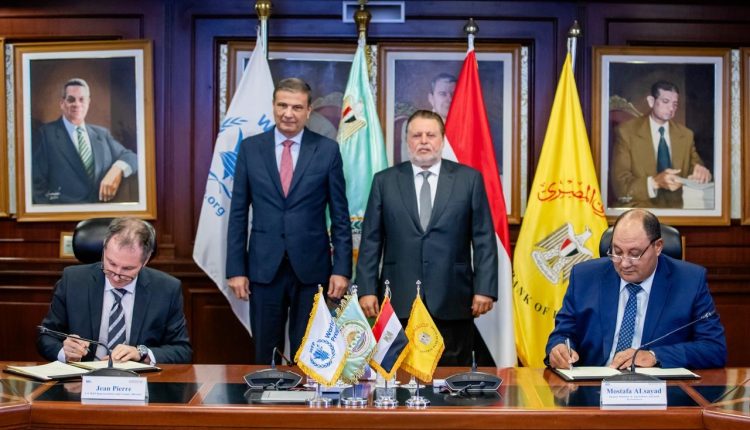Governor of the Central Bank of Egypt (CBE) Hassan Abdalla and Minister of Agriculture Alaa Farouk witnessed on Tuesday the signing of an operational agreement to launch a new phase of a key farmer support project.
The agreement, signed between the Egyptian Ministry of Agriculture and the United Nations World Food Programme, aims to kickstart the second phase of the Transforming the Livelihoods of Smallholder Farmers Project.
The second phase will operate in six governorates in Upper Egypt, with plans to expand into villages included in the Decent Life Initiative. The project aims to improve the living standards of small farmers and women.
The project, under the CBE auspices, aims to empower smallholder farmers through optimal land and water resource utilisation, women’s economic empowerment, and financial literacy programmes. This aligns with Egypt’s Vision 2030, which seeks to enhance the livelihoods of Egyptian citizens.
CBE Governor Abdalla emphasised the central bank’s commitment to supporting collaboration among local and international institutions to achieve Sustainable Development Goals (SDGs) through financial inclusion and economic empowerment.
“The project focuses on the agriculture sector which comes at the forefront of the prioritised sectors within the Egyptian economy. It will also help improving the livelihood of a large segment of citizens, in addition to boosting food production, while adhering to the applicable environmental standards, in alignment to the state’s efforts towards enhancing the economy and achieving sustainability.”
Minister of Agriculture and Land Reclamation Amr Alaa stated that the project aims to support smallholder farmers in Upper Egypt by building their capacities to combat the negative impacts of climate change on agricultural and livestock production. This includes improving production quality through land consolidation, installing solar panels, applying modern irrigation techniques, using high-quality seeds, providing technical support and agricultural guidance, and promoting agricultural waste recycling.
The WFP’s Egypt Representative and Country Director highlighted the collaborative project as a highly impactful model for empowering smallholder farmers in Egypt, particularly women. He emphasised the project’s focus on addressing immediate food security challenges while promoting long-term sustainability and enhancing the resilience of rural communities.
Following the success of the first phase, the project will expand in the second phase to incorporate several villages supported by the Decent Life Initiative. This phase will focus on six governorates in Upper Egypt and involve the participation of five banks, which will allocate over EGP 120 million in funding.
The first phase of the project, which ran from December 2020 to June 2022, benefited around 85,000 smallholder farmers. Key achievements included land consolidation, the introduction of modern irrigation techniques, and the installation of solar panels. These resulted in significant improvements in farmers’ living standards, including increased crop production, net profit, and reduced costs. The project also supported capacity building of social and civil organisations, provided financial literacy training, and funded livestock projects for women.
Participating banks offered their banking products and services during the first phase, including Meeza prepaid cards, mobile wallets, and access to Business Development Services (BDS) Hubs.
Attribution: CBE


